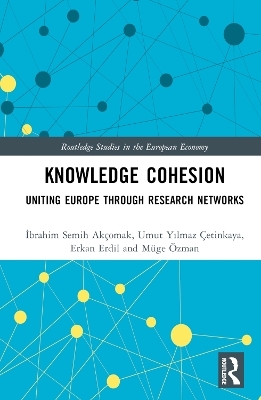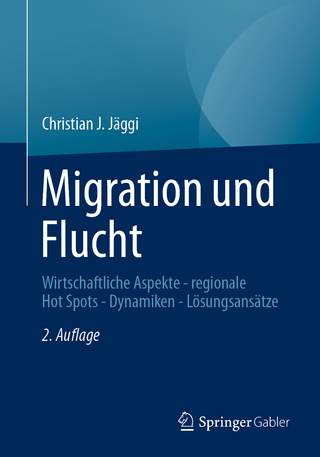
Knowledge Cohesion
Routledge (Verlag)
978-0-367-25878-8 (ISBN)
Research collaboration plays a pivotal role in not only disseminating existing knowledge but also catalyzing the generation of novel insights. This book delves into the benefits that arise from research collaborations, shedding light on their multifaceted impacts. It serves as a pioneering exploration into the nexus of collaboration, knowledge convergence, and knowledge cohesion, drawing extensively from the rich literature on the EU's cohesion policy and collaboration-induced knowledge diffusion.
Firstly, Knowledge Cohesion: Uniting Europe Through Research Networks unravels the nuanced interplay among collaboration, knowledge convergence, and knowledge cohesion. Secondly, it carves out clear distinctions between the realms of convergence and cohesion. Lastly, it unveils an empirical framework, offering tools for quantifying and analysing knowledge cohesion. These contributions culminate in the conceptualisation of knowledge cohesion, enriching our understanding of how collaborative research profoundly impacts the advancement of knowledge. The empirical analyses show that while the research collaboration network indicates knowledge convergence, there is no evidence for knowledge cohesion in Europe.
This book stands as a resource for scholars, policymakers, and practitioners alike, inviting them to explore the nuanced interplay of research collaboration and knowledge dynamics, while presenting knowledge cohesion as a new concept.
İbrahim Semih Akçomak is a professor at the Science and Technology Policy Studies (TEKPOL), Middle East Technical University (METU), Ankara, Türkiye. Umut Yılmaz Çetinkaya has completed his PhD and currently serves as the Vice Director at the Technology Transfer Office (TTO) of TOBB University of Economics and Technology (TOBB ETU), Ankara, Türkiye. Erkan Erdil is a professor at the Department of Economics, Middle East Technical University (METU), Ankara, Türkiye. Müge Özman is professor in management sciences in Institut Mines Télécom Business School, and researcher in LITEM, Université Paris Saclay, France.
Introduction 2. A Short Reminder on European Union Cohesion Policy 3. Knowledge Cohesion versus Knowledge Convergence: A Concise Introduction to Epistēmē 4. The empirics of knowledge convergence: persistent versus emerging hubs 5. Knowledge Cohesion in European Regions 6. Case studies: Strategically important regions for knowledge cohesion in the EU 7. Conclusions: Redirecting Knowledge
| Erscheinungsdatum | 23.02.2024 |
|---|---|
| Reihe/Serie | Routledge Studies in the European Economy |
| Zusatzinfo | 27 Tables, black and white; 19 Line drawings, black and white; 19 Illustrations, black and white |
| Verlagsort | London |
| Sprache | englisch |
| Maße | 156 x 234 mm |
| Gewicht | 462 g |
| Themenwelt | Naturwissenschaften ► Geowissenschaften ► Geografie / Kartografie |
| Sozialwissenschaften ► Soziologie ► Spezielle Soziologien | |
| Wirtschaft ► Volkswirtschaftslehre ► Makroökonomie | |
| ISBN-10 | 0-367-25878-1 / 0367258781 |
| ISBN-13 | 978-0-367-25878-8 / 9780367258788 |
| Zustand | Neuware |
| Informationen gemäß Produktsicherheitsverordnung (GPSR) | |
| Haben Sie eine Frage zum Produkt? |
aus dem Bereich


